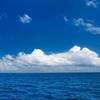Bill Introduced to Assess Great Lakes Marine Sanctuaries
Sen. Carl Levin, D-Mich., co-chair of the Senate Great Lakes Task Force, and four colleagues introduced legislation requiring a federal assessment of Great Lakes waters with significant cultural, historic or archaeological value for possible preservation as federal marine sanctuaries.
The Great Lakes Maritime Heritage Assessment Act would direct the National Oceanic and Atmospheric Administration (NOAA) to submit to Congress a report and recommendations on possible Great Lakes sanctuaries. Today, the Thunder Bay National Marine Sanctuary on Lake Huron near Alpena, Mich., which protects scores of historic shipwrecks, is the nation’s only freshwater federal sanctuary.
Cosponsors are Sen. Debbie Stabenow, D-Mich., a vice chair of the Great Lakes Task Force; Sen. Sherrod Brown, D-Ohio; Sen. Amy Klobuchar, D-Minn.; and Sen. Tammy Baldwin, D-Wis.
“Thunder Bay has had enormous scientific, cultural and economic benefits for Alpena and Northeast Michigan,” Levin said. “We should build on that success, potentially with a network of protected sites that bring the historic and cultural significance of our Great Lakes heritage to life. Our legislation would require a comprehensive assessment of possible sites, an assessment developed in close cooperation with local Great Lakes communities.”
“Michigan’s historic Great Lakes shipwrecks draw families and divers from across the state and throughout the world to discover and explore our rich maritime heritage. Sanctuaries like Thunder Bay National Marine Sanctuary help protect these fragile sites that are a window into the past,” said Stabenow. “This measure will allow more areas in the Great Lakes to be protected as sanctuaries to preserve these treasures for future generations.”
“The cultural and economic impact of Lake Erie and the Great Lakes has played a key role in the founding and development of the United States,” Brown said. “It is important that we protect these irreplaceable resources for generations to come. This legislation takes an important step in doing so.”
“Lake Superior is home to countless national treasures that hold important historical, cultural, and economic importance to Minnesota,” Klobuchar said. “This bill would help identify and preserve potential marine heritage sites throughout the Great Lakes system and could bring new research and economic development to our state and region.”
“A federal marine sanctuary designation provides not only recreation, research, and tourism opportunities but also fosters economic growth and development in the nearby communities,” Baldwin said. “The Great Lakes contain over one-fifth of the world’s freshwater yet are home to only one of our nation’s federal marine sanctuaries. As Wisconsin is bordered by two of our Great Lakes, I’m proud to support this effort to further examine these bodies of water for national designation to preserve both these natural resources and our Great Lakes culture.”
The bill would require NOAA to submit a report within one year to the relevant House and Senate committees that includes:
• Underwater areas in the Great Lakes with “historical and archaeological resources of sufficient value and density to make them nationally significant,” with a description of those assets.
• An evaluation of community interest in preserving such resources.
• Recommendations on whether such areas should be designated as national marine sanctuaries.
The bill would require NOAA to collaborate with local communities in producing its assessment.
Areas identified by NOAA as potential sanctuaries could receive protected status through action by the secretary of commerce, who is authorized under the 1972 law establishing the marine sanctuary system to designate marine sanctuaries. Congress also can pass legislation designating sanctuaries.
Today, the nation has 14 areas protected as national marine sanctuaries; all but Thunder Bay are in salt waters. Since its establishment in 2000, Thunder Bay has hosted scientific and archaeological researchers; held global student robotics competition and partnered with area educational institutions to help students develop maritime careers; and attracted tourists from across the country and around the world.











